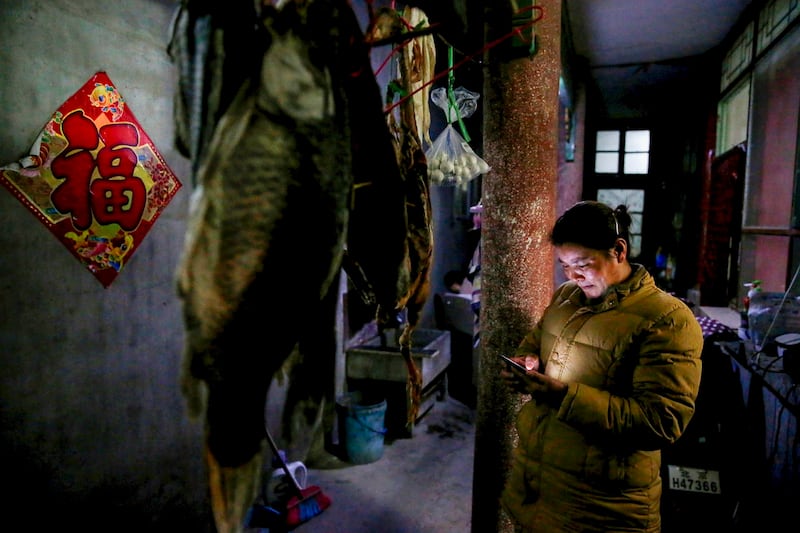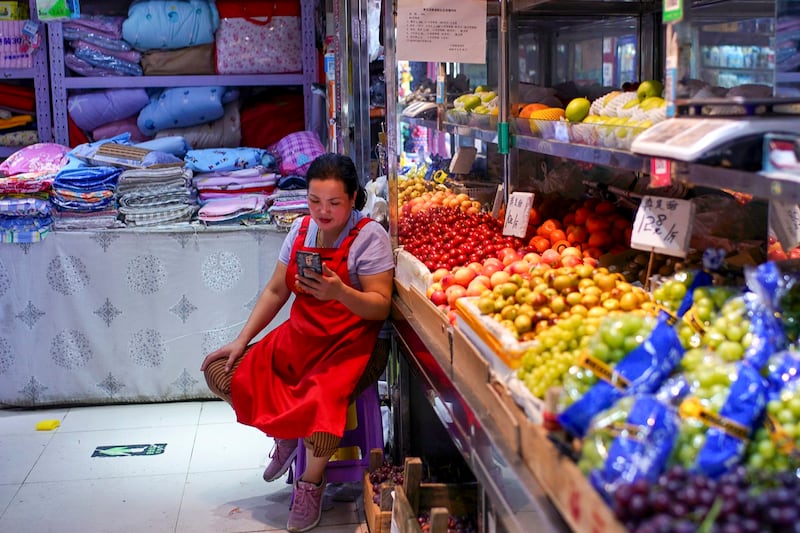China's state security police will be given sweeping powers to search electronic devices including smartphones and laptops from July 1, as part of a nationwide campaign to ensure "national security," a broad term often used by the government to include detailed economic data and political dissent.
The documents issued by the Ministry of State Security on April 26 empower its officers to gather "electronic data" relating to an investigation including "mobile phone text messages, emails, instant messages and group chats," along with "documents, images, audio and video, apps and ... log records" from electronic devices.
Police may "make inquiries" simply by presenting their police ID card, and may "collect evidence" if at least two officers present their ID card, according to the rules on administrative cases.
"The collection and extraction of electronic data shall be carried out by two or more investigators," the orders read.
However, police can investigate purely to determine "basic information about the suspect," and even whether an illegal or criminal act has taken place.
Billed by the ruling Chinese Communist Party's official Legal Daily newspaper as a set of guidelines for implementing the "national security concept," the documents come amid an ongoing nationwide campaign to encourage people to spot any kind of behavior that could "endanger national security," including being on the lookout for foreign spies in their daily lives.

In its report on the new rules, the nationalistic Global Times newspaper mentioned the campaign, citing the cases of Canadian nationals Michael Kovrig and Michael Spavor as examples of foreign spies operating in China.
Similar rules were issued governing investigations run by market regulatory agencies on April 4.
Stop and search
Legal scholar Lu Chenyuan said the new rules mean that state security police officers can stop people and search their devices without the need for a warrant, or even an ongoing criminal investigation.
"This is very bad, because they can actually check people's cell phones as part of administrative law enforcement," he said. He was referring to a type of law enforcement that goes after people who have allegedly broken the law, but whose infractions aren't deemed serious enough to warrant a full criminal prosecution.
Dissidents and rights lawyers have previously been initially held under an administrative sentence of up to 15 days, at which point police either transfer them into "residential surveillance at a designated location" or place them under criminal detention pending further investigation.
Administrative sentences have also been widely used to target petitioners, internet users who post the wrong thing on social media, and people who took part in the November 2022 "white paper" protests across China.

Lu said the state security orders will likely contribute to an atmosphere of fear in China, and encourage people to censor themselves more than they already do.
"I think their purpose is to create a situation where everyone feels as if they could be in danger," Lu said. "They want people to carry out strict self-censorship, for example, not being in contact with anyone outside the country."
He said the authorities could also be looking for people with encrypted messaging apps like Signal or Telegram installed on their phones.
An academic who gave only the surname Liu for fear of reprisals agreed, saying the move is part of the current "national security" campaign.
"They want to push this idea of national security to everyone, to create a pervasive atmosphere of fear in everyone's daily lives," Liu said.
Border checks already happening
Anecdotal evidence from people who frequently travel in and out of China suggests that police at the borders are already carrying out spot checks of people's phones when they cross the border.
A Hong Kong resident who gave only the surname Kong for fear of reprisals said she saw border guards examining the mobile phone of a woman at Futian Port over the weekend.
"As I was going through immigration in Shenzhen, I noticed two female border guards checking a woman's mobile phone," Kong said. "They were asking her if she had any other phones because she had more than one with her."

She said she had seen officers checking people's phones recently at airports in Nanjing and Hangzhou, too.
"They look at what's on your phone, what photos are there," Kong said. "I cleaned up my phone that day, deleting any content that could be highly sensitive."
A Shanghai resident who gave only the surname Shao for fear of reprisals said he had also spotted customs officials checking a man's phone at Shanghai's international airport on his way home from Japan.
"I saw a Chinese man being stopped by customs, who looked at his phone and then let him go," Shao said. "So it seems they didn't find anything problematic on his phone."
It was unclear whether the new rules will mean that such checks will be more frequent in future.
Repeated calls to customs authorities in Shenzhen and Shanghai rang unanswered during office hours on Monday.
Translated by Luisetta Mudie. Edited by Malcolm Foster.
